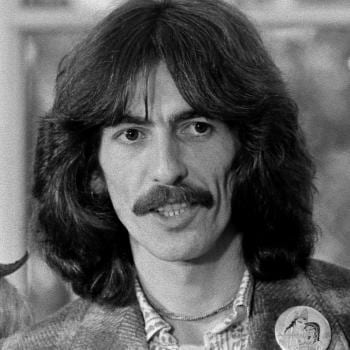To put it mildly, Donald Trump has engaged in some questionable pandemic-related behavior. As The Washington Post succinctly put it, “President Trump contracted the novel coronavirus after months in which he and people around him avoided taking basic steps to prevent the virus’s spread, like wearing masks and avoiding large indoor crowds.”
What I’m wondering, and maybe you are too, is this: Is President Trump’s Covid-19 infection the result of karma? Will his continuing disregard for the disease, and the health and well-being of those around him, cause him additional suffering?
There are 12 Rules of Karma but I’d like to focus on the first and perhaps most important law—what has been referred to as The Great Law or The Law of Cause & Effect. It may be no coincidence that an identical law appears in the Bible, specifically in the New Testament’s Galatians 6:7, in a letter written by the Apostle Paul. Both the Karma law and the Bible passage read like this:
As you sow, shall you reap.
Put simply, your actions have consequences. Things will happen to you both good and bad, depending on how you behave. Do good in the world and good things will happen to you. But behave irresponsibly or with malice and these bad acts may come back to bite you.
To learn more about karma, I consulted the writings of an expert, the Indian spiritual leader Paramhansa Yogananda (1893-1952). Yogananda is noteworthy in that he was heavily influenced by the life of Jesus and quoted him frequently. He also had a major influence on Steve Jobs, who credited the yogi’s self-realization philosophy as the key to his success. Likewise, Beatle George Harrison gave away copies of Yogananda’s autobiography to anyone he believed needed a “regrooving.”
In the book The Essence of Self-Realization, Yogananda’s disciple J. Donald Walters recorded and compiled the sayings and wisdom of his teacher, including many pages on how karma works. Yogananda believed that karma and reincarnation are related and that while karma may very well be returned in this lifetime, it could also be returned in the next.
What you’ll find below are what I believe to be Yogananda’s most important teachings on karma which I’ve lightly edited. They represent four key lessons about karma and how it can impact our lives in both good and bad ways.
4 KEY TEACHINGS OF KARMA
Teaching #1: Sow evil and you will reap evil, in the form of suffering.
This is an extension of rule #1 from the 12 Rules of Karma, “As you sow, shall you reap.” Yogananda goes on to say that “when you sow goodness, you will reap goodness in the form of inner joy.” He also states that “every thought, every action, reaps its own corresponding rewards.” Our actions ultimately determine whether we bring the good or the negative into our lives. Like begets like.
Teaching #2: The results of good and bad deeds can be experienced in this life.
Some may believe that after you die, you’ll be punished in hell for your bad deeds or rewarded in heaven for your kind acts. Yogananda reminds us that heaven is not “up there, as people commonly imagine, it is all around us,” just beyond our physical vision. In his words, “Heaven and hell are realities here on earth, where people reap the painful consequences of their folly, and the harmonious results of right action.”
Teaching #3: If you create disharmony for others, disharmony will ultimately return to you.
Yogananda tells us that If you ridicule or condemn others, then at some time, in this life or is some future life, you will have to undergo the same experiences. He tells us that “people seldom think of their own actions as bad. Whatever they do seems, at least to them, well-intentioned.” Yet if an action ultimately causes harm or creates ill will, it “must eventually return” to the person who is responsible for it.
Teaching #4: As Jesus said, to one who loves much, much is forgiven. (Matthew 7:14)
Yogananda loves to quote Jesus and uses the passage above to remind us that love may be the greatest tool we have in creating good karma. In a related passage, Yogananda tells us that “the greater a person’s emphasis on ego-fulfillment, the less his awareness of true joy.” The more we try to fulfill the whims and will of the ego, the less good karma we create.
Do the rules of karma apply to Donald Trump? If yes, can the president now reverse the laws of Karma that may be affecting him negatively and turn them to his benefit? Does he have it in him to learn from experience and be a better, more compassionate person to the people around him and the country he serves? I’ll let you be the judge.














